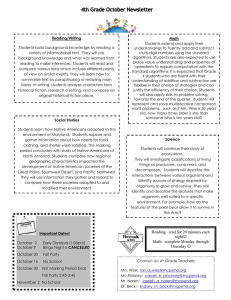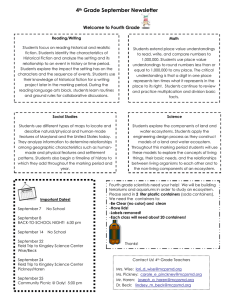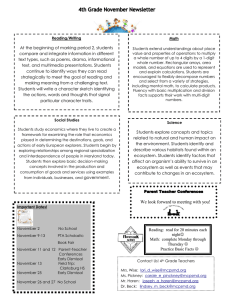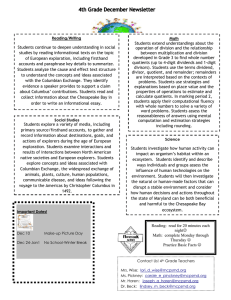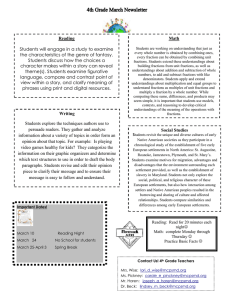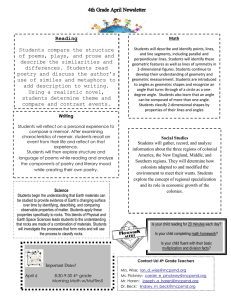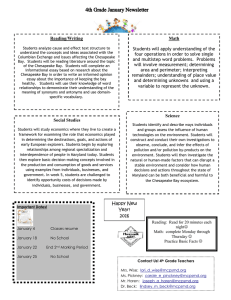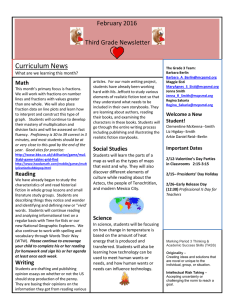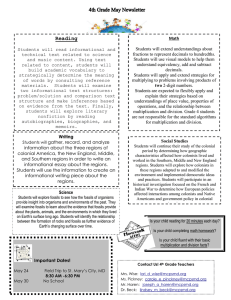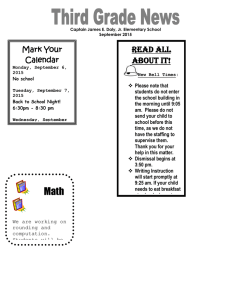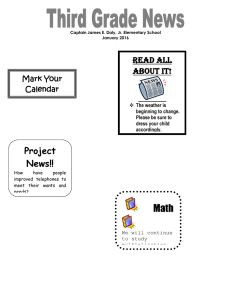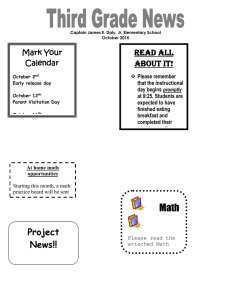February 2016
advertisement
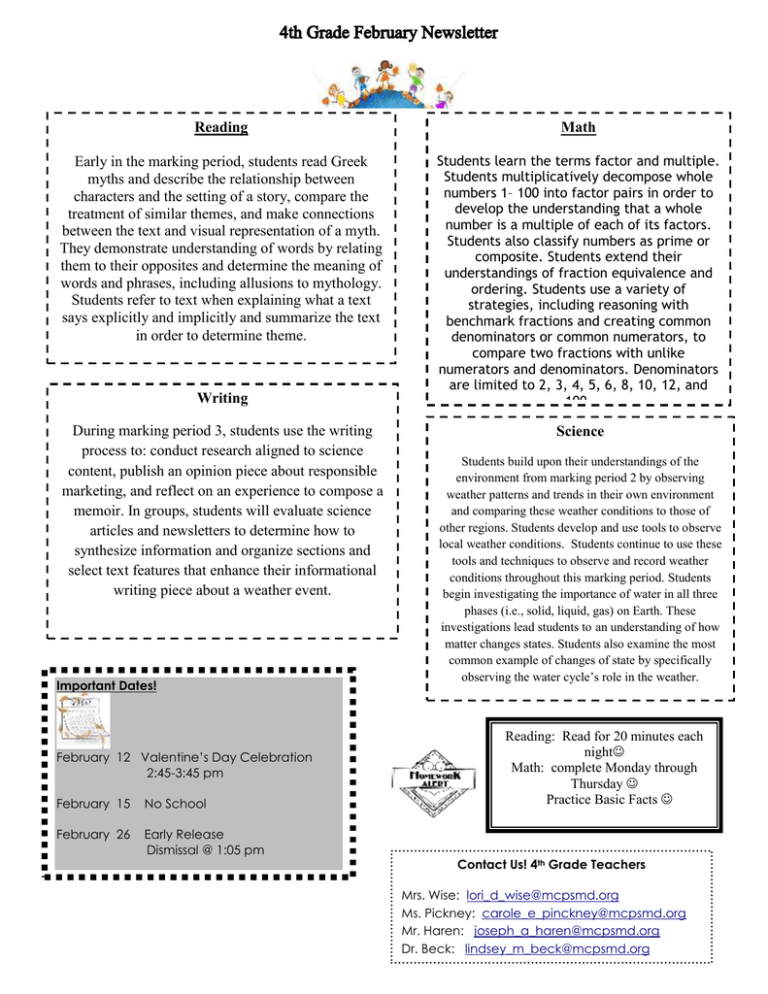
Reading Math Early in the marking period, students read Greek myths and describe the relationship between characters and the setting of a story, compare the treatment of similar themes, and make connections between the text and visual representation of a myth. They demonstrate understanding of words by relating them to their opposites and determine the meaning of words and phrases, including allusions to mythology. Students refer to text when explaining what a text says explicitly and implicitly and summarize the text in order to determine theme. Students learn the terms factor and multiple. Students multiplicatively decompose whole numbers 1– 100 into factor pairs in order to develop the understanding that a whole number is a multiple of each of its factors. Students also classify numbers as prime or composite. Students extend their understandings of fraction equivalence and ordering. Students use a variety of strategies, including reasoning with benchmark fractions and creating common denominators or common numerators, to compare two fractions with unlike numerators and denominators. Denominators are limited to 2, 3, 4, 5, 6, 8, 10, 12, and 100. Writing During marking period 3, students use the writing process to: conduct research aligned to science content, publish an opinion piece about responsible marketing, and reflect on an experience to compose a memoir. In groups, students will evaluate science articles and newsletters to determine how to synthesize information and organize sections and select text features that enhance their informational writing piece about a weather event. Important Dates! February 12 Valentine’s Day Celebration 2:45-3:45 pm February 15 No School February 26 Early Release Dismissal @ 1:05 pm Science Students build upon their understandings of the environment from marking period 2 by observing weather patterns and trends in their own environment and comparing these weather conditions to those of other regions. Students develop and use tools to observe local weather conditions. Students continue to use these tools and techniques to observe and record weather conditions throughout this marking period. Students begin investigating the importance of water in all three phases (i.e., solid, liquid, gas) on Earth. These investigations lead students to an understanding of how matter changes states. Students also examine the most common example of changes of state by specifically observing the water cycle’s role in the weather. Reading: Read for 20 minutes each night Math: complete Monday through Thursday Practice Basic Facts Contact Us! 4th Grade Teachers Mrs. Wise: lori_d_wise@mcpsmd.org Ms. Pickney: carole_e_pinckney@mcpsmd.org Mr. Haren: joseph_a_haren@mcpsmd.org Dr. Beck: lindsey_m_beck@mcpsmd.org
